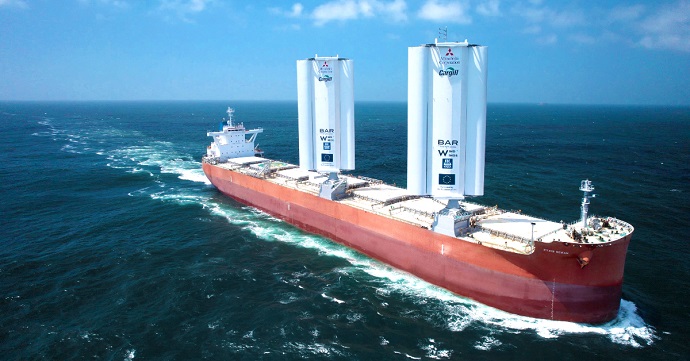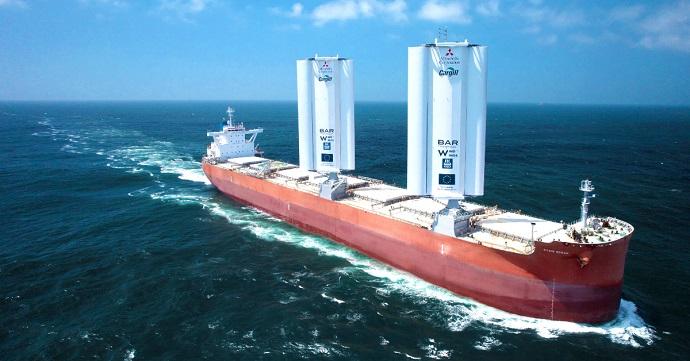The week commencing 23 August, we have seen the bulk carrier Pyxis Ocean set sail (literally!) for the first time with its new retro-fitted “WindWing” sails, marking a significant step in the race to demonstrate the effectiveness of WASP (Wind Assisted Ship Propulsion) systems. And our specialist Marine Engineering team at Mewburn Ellis have been particularly excited to see this development picked up by technology reporters from mainstream news outlets such as the BBC.
The shipping industry faces very significant challenges in reducing greenhouse gas emissions. Meeting in London at the beginning of July, the International Maritime Organization’s Marine Environment Protection Committee adopted a revised strategy on tackling greenhouse gas emissions. Its new targets include a 20% reduction in emissions by 2030, a 70% reduction by 2040 (relative to 2008 levels), and an ultimate goal of achieving net-zero emissions by 2050. It seems inevitable that wind propulsion will have a significant role to play in hitting those targets, alongside other developments such as cleaner fuels.

Credit: Cargill
WASP systems harness the wind to supplement the propulsive power generated by a ship’s engines, with the aim of thereby reducing fuel consumption and emissions. The “WindWing” sails now fitted to the Pyxis Ocean bear little resemblance to traditional sails, and instead are rigid multi-element wingsails. The “WindWings” have been developed by BAR Technologies – a UK company spun out of Sir Ben Ainslie’s 2017 America’s Cup campaign and involving several people with experience in Formula 1. This application of Formula 1 experience is something that we are seeing ourselves in our work with clients developing their own WASP systems.
But wingsails are only one type of WASP system. Rotor sails and kite systems are also seeing rapid development, and Mewburn Ellis’ Marine Engineering team is proud to be working with clients developing technology related to all of these different approaches to WASP.



